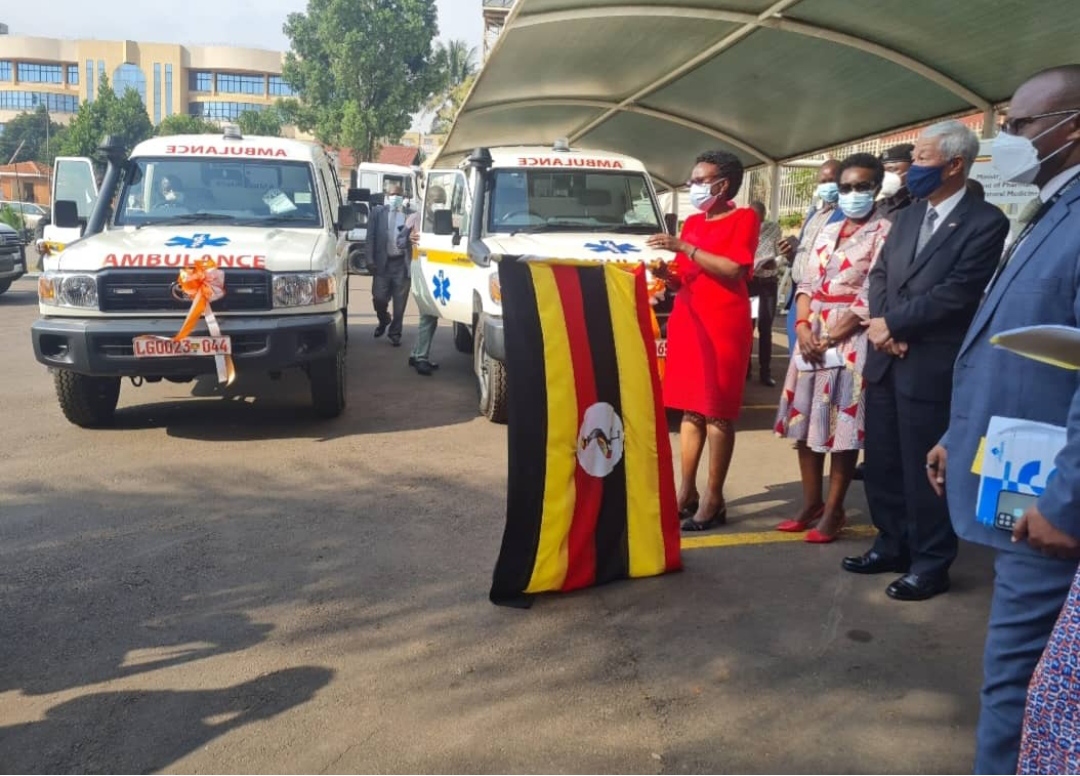
By Kyaggwe TV
Kampala
The Ministry of Health has embarked on a transformative journey to boost the Emergency Medical Services (EMS) throughout the country.
Through the National Emergency Medical Services System Policy, this critical initiative is set to reshape the landscape of emergency response from the national level down to the regional tier, encompassing the various health sub-regions across the country.

The cornerstone of this ambitious endeavour is the acquisition of a sophisticated call and dispatch system, paired with the development of vital infrastructure, crucial for the effective execution of these services.
Maria Nkalubo, the Principal Operations Officer at the Department of Emergency Medical Services in the Ministry of Health, shed light on the drive behind this pioneering effort. For far too long, the Emergency Medical Services in Uganda have grappled with inadequacies, a situation that has garnered widespread concern.
According to Nkalubo, the Uganda Communications Commission has already allocated the ministry the emergency call number 912, and they are currently in the process of fortifying the necessary infrastructure and human resources at both the national and regional levels.
“Our financial backing for this colossal task comes from our development partners, including the World Bank,” she explains.
Emergency helplines are a critical component of modern healthcare systems. They ensure rapid response to emergencies, reduce mortality and morbidity, and play a vital role in individuals’ and communities’ overall health and well-being. The effectiveness of an emergency call system can have a profound impact on the quality of healthcare in a region or country.
The inception of this transformation comes in response to findings unveiled in the “Responding to Emergencies” report, conducted by Twaweza East Africa, which provided a snapshot of Ugandan citizens’ experiences and opinions regarding emergency situations and services within the country.
The report, which was conducted in 2021, in the aftermath of the Covid-19 pandemic, surfaced several critical revelations. It indicated that emergency medical services were urgently needed, with 15% of the population reporting that they had encountered an emergency in the past six months.
This need transcended the urban-rural divide, with the figure remaining consistent across both areas. In response to emergencies, a significant proportion of the respondents revealed that they had resorted to travelling to health centres, with 7% driving and 5% walking.
A smaller segment of the population had expectations of being assisted on-site through ambulance services (1%) or by calling a health worker (1%).
Moreover, the report provided insight into the public’s expectations during emergency situations, with 39% indicating that they would either seek help from bystanders or make their way to the nearest hospital.
Marie Nanyazi, the Senior Programs Officer at Twaweza East Africa, highlighted the profound lack of awareness among the populace, stating that only 1 out of 20 citizens are aware that a toll-free emergency services number exists.
In a startling revelation, the report disclosed that a mere 5% of the population was aware of the 911 toll-free number, while 3% knew of its existence but couldn’t recall the number. This left a staggering 95% of the population completely oblivious to these emergency contact numbers.
Transporting casualties from the scene of an emergency to a health facility remained a critical concern. Only 19% of the population was aware of ambulance services available in their villages.
Citizens primarily relied on ambulances provided by their area MPs (10%) and government ambulances (8%). These figures underscore the pressing need for coordinated and widely available ambulance services, with a mere 4% of Ugandans reporting having ever used an ambulance.
Nanyazi also highlighted the waiting times experienced at health centres during emergencies, revealing that the average wait time was 43 minutes. Of the citizens surveyed, 20% claimed they were attended to within five minutes, while another 20% received assistance within 20 minutes. However, a concerning 12% reported waiting for over an hour to receive care.
The report was first unveiled in Kampala before being disseminated to national stakeholders, followed by a presentation to leaders and healthcare providers in the Ankole region.
This particular region stood out, with 12% of its population reporting awareness of emergency response services, a testament to the commendable efforts of the healthcare providers and leaders in that area.
